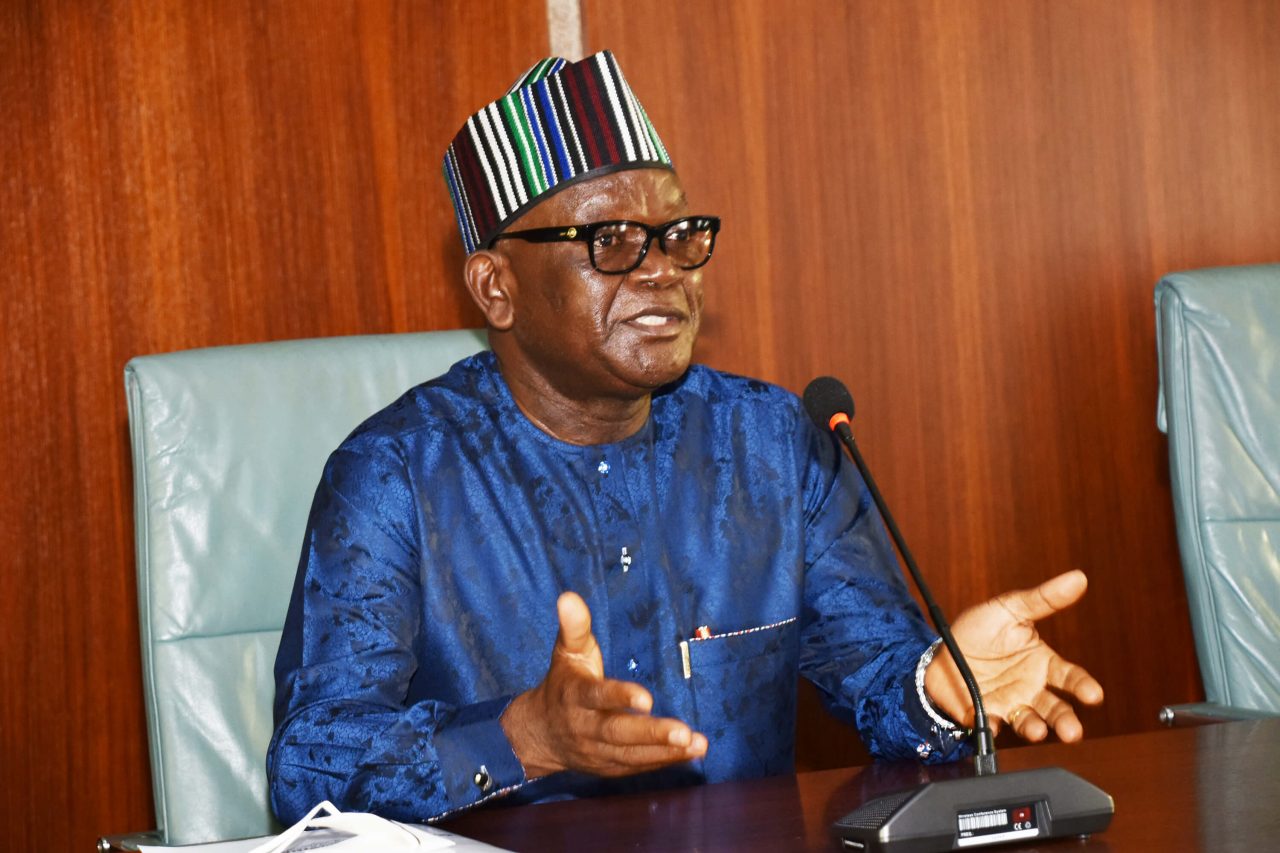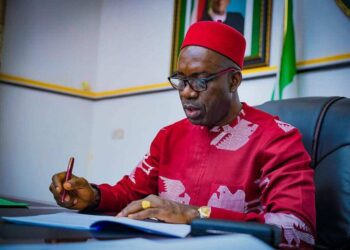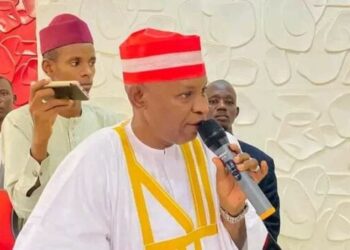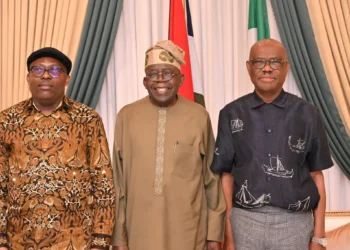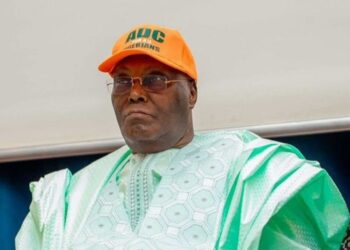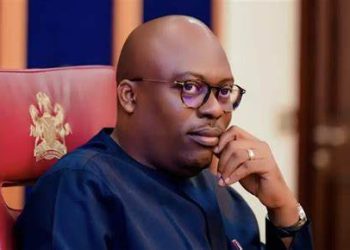Former Benue State Governor Samuel Ortom was forcibly removed from the National Executive Committee Hall at the Peoples Democratic Party headquarters in Abuja on Tuesday, marking another violent episode in the escalating power struggle tearing the opposition party apart.
A video that went viral on social media captured the chaotic moment when Ortom entered the hall during a press briefing being conducted by Governors Seyi Makinde of Oyo State and Bala Mohammed of Bauchi State. Agitated voices could be heard shouting, “Let him out, who is he? This is not your PDP,” as the former governor was ushered out of the venue.
The dramatic ejection highlights the intensifying battle between rival camps fighting for control of Nigeria’s main opposition party, with both factions claiming legitimacy and refusing to back down.
The confrontation occurred after competing blocs attempted to hold separate meetings at the party’s Wadata Plaza headquarters on the same day. The National Working Committee elected at the controversial Ibadan convention in Oyo State had scheduled a session, while the faction aligned with Federal Capital Territory Minister Nyesom Wike planned their own gathering.
Members of the pro-Wike group, led by embattled National Secretary Samuel Anyanwu, had arrived at the secretariat earlier in the day. However, violence reportedly erupted shortly afterward, resulting in their forceful removal from the premises by rival party members.
Despite the charged atmosphere and heightened security presence, Governors Makinde and Bala Mohammed successfully entered the NEC Hall alongside newly elected National Chairman Taminu Turaki to conduct their meeting.
Following their session, the three leaders held a press conference in which they insisted that those elected during the Ibadan convention constitute the legitimate leadership of the party and have the rightful authority to occupy key positions.
Addressing journalists, Turaki launched a scathing attack on the violence that marred the day’s proceedings, accusing an unnamed serving federal minister of orchestrating the chaos by deploying thugs with the backing of certain security operatives to disrupt legitimate party business.
The national chairman characterized the incident as a direct assault on democratic principles and warned that such tactics threatened the foundations of Nigeria’s political system.
In an extraordinary move, Turaki made a direct appeal to the international community, specifically mentioning United States President Donald Trump, claiming that Nigerian democracy was facing existential threats that required global attention and intervention.
The reference to Trump comes at a particularly sensitive moment in Nigeria-U.S. relations, following the American president’s controversial designation of Nigeria as a “Country of Particular Concern” and threats of military intervention over alleged Christian persecution—claims the Nigerian government has vigorously denied.
Turaki’s decision to invoke Trump’s name in an internal party dispute suggests the PDP’s new leadership is attempting to frame its struggle as part of a broader fight for democracy in Nigeria, potentially seeking to attract international scrutiny of what they view as ruling party interference in opposition affairs.
The national chairman concluded his remarks by declaring that genuine party loyalists were prepared to defend what he described as the mandate freely given to them by delegates at the Ibadan convention, signaling that the factional warfare is far from over.
The ugly scenes at the PDP secretariat on Tuesday represent the most visible manifestation yet of the deep schism that has paralyzed the opposition party since the disputed Ibadan convention, which produced the Turaki-led executive amid legal challenges and accusations of procedural irregularities.
The Wike-aligned faction has consistently rejected the legitimacy of the Ibadan gathering, arguing that it violated court orders and party constitution provisions. They have maintained that Anyanwu remains the authentic national secretary and that the expelled FCT minister retains his party membership despite expulsion pronouncements.
Meanwhile, the Ibadan convention faction, backed by influential governors like Makinde and Bala Mohammed, insists their process was valid and that they represent the genuine will of party members seeking to rescue the PDP from what they describe as Wike’s destructive influence.
The involvement of sitting governors on both sides of the divide underscores how the leadership battle has evolved beyond a simple power struggle into a proxy war involving some of Nigeria’s most powerful political actors positioning themselves ahead of the 2027 elections.
Ortom’s ejection from the premises, captured on video and widely shared online, provides a stark illustration of how personal the conflict has become, with former allies now unable to occupy the same space without violence threatening to erupt.
As the PDP remains consumed by internal warfare, questions are mounting about whether the opposition party can present a united front capable of challenging the ruling All Progressives Congress in upcoming elections, or whether the factional conflicts will render it politically irrelevant at a time when many Nigerians are seeking viable alternatives to the current government.
For now, the battle for the soul of the PDP continues to be fought not in courtrooms or at the ballot box, but through physical confrontations at the party’s own headquarters—a troubling spectacle that reflects poorly on Nigeria’s democratic culture and the maturity of its political class.

